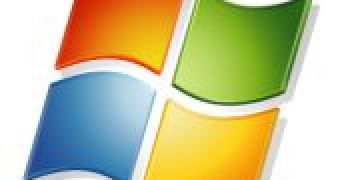Microsoft confirmed officially that it was developing the next iteration of the Windows client and server operating systems in parallel just as it had done with Windows 7 and Windows Server 2008 R2, and Windows Vista SP1 and Windows Server 2008 before them. However, following his keynote at Tech•Ed 2010, Bob Muglia, president, Server and Tools Business, noted that Microsoft had yet to slap an official codename on the successors of Windows 7 and Windows Server 2008 R2. Muglia also stated that, at this point in time, there wasn’t really a feature list that the Redmond company had been settled on, and that a target release deadline was also up in the air.
"Just like with Windows Server 2008 R2 and Windows 7, we worked on a common schedule and a common thing with our friends in the client team, and we're still doing that," Muglia stated. (via Beyond Binary)
In the past, Steven Sinofsky, president, Windows and Windows Live Division, also objected to the Windows 8 moniker being used for the evolution of Windows client and server. However, despite this, various other Microsoft internal sources are, in fact, referring to the successor of Windows 7 as Windows 8.
One very interesting aspect related to how the development process of Windows changes after Sinofsky came at the helm of the project has been imported from the Office team. When Sinofsky was leading Office, Microsoft did not use codenames for future releases of the productivity suite, but product numbers instead. Office 2010, for example, was Office 14 (it should have been Office 13, as Office 2007 was Office 12, but Microsoft skipped the unlucky number). The next version of Office has already been labeled Office 15.
When Sinofsky transitioned to Windows, the successor of Windows Vista became Windows 7, as Vista was Windows 6.0. It is only naturally to assume, and Microsoft’s own employees did so, that the next version of Windows will be labeled Windows 8.
While not opening too much of the future, Muglia did point out that Windows Server vNext will be a major release of the OS, as Windows Server 2008 R2 was a minor upgrade to the plain vanilla Windows Server 2008. "We're not talking a lot about the next version of Windows Server today," Muglia revealed, "but I think what you'll see is...that the learnings that we have from Windows Azure will be pulled back into Windows Server, just like there's features in Windows Server and SQL Server that are being pulled up into Windows Azure and SQL Azure."

 14 DAY TRIAL //
14 DAY TRIAL //